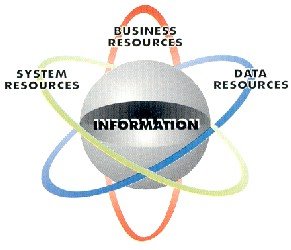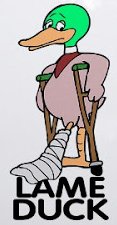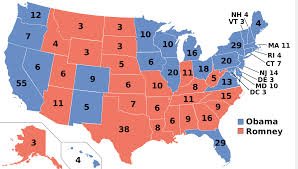BRYCE ON SYSTEMS
- What are the duties and responsibilities of the BA?
(Click for
AUDIO VERSION)
To use this segment in a Radio broadcast or Podcast, send TIM a request.

In theory, a "Business Analyst" (or "BA") is the intermediary between business people and the Information Technology staff. It is his/her responsibility to interpret and define the information requirements of the business, and devise a suitable system to solve the need, be it a packaged solution or in-house development (or both). Years ago, this function was commonly referred to as a "Systems Analyst," but this dropped out of vogue in the 1980's as "Software Engineers" became the rage. "Systems Analyst" was eventually replaced by "Business Analyst" as a way of distinguishing the differences of systems and software. Yet, when you read a BA job description today, it calls for knowledge of such things as SQL, Oracle, Agile development, or programming languages. In other words, they are not true Business Analysts.
This makes me wonder if the industry really grasps the duties and responsibilities of the BA. The industry talks about such people, but have we standardized a job description? We wrote several such descriptions as part of our
"PRIDE" Methodologies for IRM and based on this, let me see if I can establish a standard job description:
BUSINESS ANALYSIS ("BA")
SCOPE OF FUNCTION
The purpose of this function is to design reliable information systems that satisfy the information requirements of the enterprise and are easy to modify and maintain in the most cost effective means possible.
SPECIFIC DUTIES AND RESPONSIBILITIES
* Reports administratively to Systems Resource Management on all activities, and to Project Management on all project specific activities.
* Maintains a line of communication with Enterprise Engineering, Program/Software Engineering, Data Engineering, User Management, Operations, and support functions.
* Reviews pertinent deliverables resulting from pertinent design methodologies with Project Management and the support functions (e.g., QA).
* Prepares project scopes subject to Project Management approval.
* Documents existing information systems.
* Interviews end-users to specify information requirements.
* Analyzes and details information requirements.
* Reviews formal and informal deliverables resulting from pertinent design methodologies with users for accuracy.
* Develops system solutions that can satisfy information requirements in the most cost effective means possible. This includes preparing complete rough designs of systems, and the evaluation of purchased packages to satisfy the requirements.
* Participates in project planning activities, including estimating and scheduling, and cost evaluation.
* Performs system design; this includes breaking systems into sub-systems (aka "Business Processes").
* Prepares complete examples (illustrative) of outputs and inputs for users to review/approve.
* Performs sub-system design; this includes breaking sub-systems into procedural work flows.
* Prepares administrative procedures for users to execute the manual aspects of systems.
* Works with Program/Software Engineering in providing specifications regarding computer procedures.
* Educates users in the operation of new or modified systems.
* Develops system test plans and performs the tests in cooperation with Program/Software Engineering.
* Designs the logical data base models for applications. This includes defining the "objects," "views," and data elements required by information systems. Data Engineering serves in an advisory capacity.
REQUIRED KNOWLEDGE/SKILLS/EXPERIENCE
* An in-depth understanding of in-house methodologies, standards, tools, and techniques.
* The ability to estimate BA activities within tolerances as established by the installation.
* Good interpersonal relations/communications skills.
* Effective writing skills.
* Possess good analytical and problem solving skills.
* Must be results oriented.
* The ability to prepare and conduct project review meetings and participate in those reviews in a professional manner.
* A thorough understanding of development functions.
* The experience and ability to assume responsibility for performing assigned tasks and meeting objectives within time and cost constraints.
* An in-depth understanding of the user organization being served; this includes the information required by users to function properly.
* A perceptive listener, able to suggest areas where information and systems can provide additional benefits to the user.
* The ability to distinguish between real and imagined business needs and diplomatically point them out to the user.
* Capable of discussing user information needs in business terminology, avoiding the use of technical terms where possible.
* Sensitive to the needs of the user and understands the role of the new system in achieving the user's objectives.
* General understanding of the use of computers to meet system processing requirements.
EVALUATION OF PERFORMANCE
The following list is intended as a guide to evaluate the performance of the BA function. Evaluation will be based upon observation by Systems Resource Management, Project Management, User Management, Program/Software Engineering, and Quality Assurance.
* BA personnel adheres to all pertinent policies and procedures.
* BA personnel have a thorough understanding and knowledge of all development related functions and responsibilities.
* Systems Resource Management, Project Management, Program/Software Engineering, and support functions are aware of all BA activities.
* BA personnel assume responsibility for performing assigned tasks and achieves them within time and cost constraints.
* BA activities are performed according to approved plans.
* BA staff produces quality work (few mistakes).
* BA Works closely with the various development support functions to assure that all pertinent standards are properly followed.
* BA work is thorough and professionally prepared.
* Systems are standardized and controlled; they are also easy to modify and maintain.
* Systems are designed correctly, according to specifications, and are reliable.
* Information requirements accurately reflect users needs.
* System designs are creative and practical.
* Application logical data base designs are correctly defined.
* Writes effectively and clearly.
* Systems are well tested and free of known defects.
FUNCTIONAL RELATIONSHIPS
Function is administratively subordinate to Systems Resource Management and operationally subordinate to Project Management for project activities. Maintains a lateral working relationship with Program/Software Engineering, Data Engineering, Enterprise Engineering, User Management, and support functions (e.g., QA).
If the company has standardized on a methodology, I would add the phases and activities the BA is responsible for executing, reviewing, and approving.
Maybe this is a good starting point to bring uniformity to Business Analysis. By the way, you will notice there is no mention of programming and DBMS skills. They have their place, but it certainly isn't with Business Analysis.
Keep the Faith!
Note: All trademarks both marked and unmarked belong to their respective companies.
Copyright © 2014 by Tim Bryce. All rights reserved.
NEXT UP: EVIL WITHIN OUR MIDST - Have we really evolved as a species?
- Using a "Common Core" analogy to explain why our "PRIDE" Methodology is still far ahead.
Listen to Tim on WJTN-AM (News Talk 1240)
"The Town Square" with host John Siggins (Mon, Wed, Fri, 12:30-3:00pm Eastern), and KIT-AM 1280 in Yakima, Washington
with hosts Dave Ettl & Lance Tormey (weekdays. 6:00-9:00am Pacific). Or tune-in to Tim's channel on
YouTube.
 Down here in Florida we have a lot of problems with trucks breaking down, particularly those used for delivery or maintenance. It seems every time you make an appointment with a driver to drop something off or a workman who is scheduled to perform a task for you, they can never seem to be there on time and blame the truck for breaking down. Does this happen elsewhere in the country or is it something unique to Florida?
Down here in Florida we have a lot of problems with trucks breaking down, particularly those used for delivery or maintenance. It seems every time you make an appointment with a driver to drop something off or a workman who is scheduled to perform a task for you, they can never seem to be there on time and blame the truck for breaking down. Does this happen elsewhere in the country or is it something unique to Florida?
 Tim Bryce is a writer and the Managing Director of M&JB Investment Company (M&JB) of Palm Harbor, Florida and has over 30 years of experience in the management consulting field. He can be reached at timb001@phmainstreet.com
Tim Bryce is a writer and the Managing Director of M&JB Investment Company (M&JB) of Palm Harbor, Florida and has over 30 years of experience in the management consulting field. He can be reached at timb001@phmainstreet.com Of our 44 presidents, the most prolific writer was John Quincy Adams who maintained a detailed journal of his life, from boyhood until near the end of his life. Adams' presidency was unsuccessful, but he served Congress afterwards as a dedicated public servant. He also had a keen eye for the world around him, be it social, political, economic, military, religious, or whatever. Being somewhat pious, Adams came to the conclusion, "man is born inherently evil." This struck me like a thunderbolt.
Of our 44 presidents, the most prolific writer was John Quincy Adams who maintained a detailed journal of his life, from boyhood until near the end of his life. Adams' presidency was unsuccessful, but he served Congress afterwards as a dedicated public servant. He also had a keen eye for the world around him, be it social, political, economic, military, religious, or whatever. Being somewhat pious, Adams came to the conclusion, "man is born inherently evil." This struck me like a thunderbolt.
 In theory, a "Business Analyst" (or "BA") is the intermediary between business people and the Information Technology staff. It is his/her responsibility to interpret and define the information requirements of the business, and devise a suitable system to solve the need, be it a packaged solution or in-house development (or both). Years ago, this function was commonly referred to as a "Systems Analyst," but this dropped out of vogue in the 1980's as "Software Engineers" became the rage. "Systems Analyst" was eventually replaced by "Business Analyst" as a way of distinguishing the differences of systems and software. Yet, when you read a BA job description today, it calls for knowledge of such things as SQL, Oracle, Agile development, or programming languages. In other words, they are not true Business Analysts.
In theory, a "Business Analyst" (or "BA") is the intermediary between business people and the Information Technology staff. It is his/her responsibility to interpret and define the information requirements of the business, and devise a suitable system to solve the need, be it a packaged solution or in-house development (or both). Years ago, this function was commonly referred to as a "Systems Analyst," but this dropped out of vogue in the 1980's as "Software Engineers" became the rage. "Systems Analyst" was eventually replaced by "Business Analyst" as a way of distinguishing the differences of systems and software. Yet, when you read a BA job description today, it calls for knowledge of such things as SQL, Oracle, Agile development, or programming languages. In other words, they are not true Business Analysts.
 It is a strange feeling when you realize you are noticeably ahead of the industry on something. At first it is rewarding, followed by a sense of frustration when you face competition from inferior products, particularly if they are based on pseudo-scientific technology. This leads me to make the boastful claim…
It is a strange feeling when you realize you are noticeably ahead of the industry on something. At first it is rewarding, followed by a sense of frustration when you face competition from inferior products, particularly if they are based on pseudo-scientific technology. This leads me to make the boastful claim… I recently attended a viewing of the movie
I recently attended a viewing of the movie  The expression "Lame Duck" was first used in American politics in the 1860's during the final days of President Buchanan's administration, who was succeeded by Abraham Lincoln. Basically, it suggests the politician no longer has any influence as he is preparing to leave office.
The expression "Lame Duck" was first used in American politics in the 1860's during the final days of President Buchanan's administration, who was succeeded by Abraham Lincoln. Basically, it suggests the politician no longer has any influence as he is preparing to leave office.
 The
The  In 1835, noted historian and political commentator
In 1835, noted historian and political commentator  One of the biggest myths in American government is that the President and Vice President are directly elected by the people. Nothing could be further from the truth. Get it out of your head now. In fact, the
One of the biggest myths in American government is that the President and Vice President are directly elected by the people. Nothing could be further from the truth. Get it out of your head now. In fact, the  My fascination with James Bond, code named 007 of British Intelligence, began 50 years ago with the movie "Goldfinger." Although author Ian Fleming introduced the character and story line in 1953 in a 12 volume set of books, it was "Goldfinger" that made the franchise. "Dr. No" and "From Russia with Love" preceded "Goldfinger," but it was the third movie in the series which caught the public's imagination. Maybe it was the Aston Martin DB5 with its bag of tricks that caught our attention, or the girl murdered in gold paint, the henchman "Oddjob" with his steel rimmed bowler, or Pussy Galore and her flying circus. Actually, it was the whole package we found very avant-garde and provocative, thereby making "Goldfinger" a smash hit. So much so, the producers rushed "Dr. No" and "From Russia with Love" back into theaters as reruns to capitalize on the Bond hysteria.
My fascination with James Bond, code named 007 of British Intelligence, began 50 years ago with the movie "Goldfinger." Although author Ian Fleming introduced the character and story line in 1953 in a 12 volume set of books, it was "Goldfinger" that made the franchise. "Dr. No" and "From Russia with Love" preceded "Goldfinger," but it was the third movie in the series which caught the public's imagination. Maybe it was the Aston Martin DB5 with its bag of tricks that caught our attention, or the girl murdered in gold paint, the henchman "Oddjob" with his steel rimmed bowler, or Pussy Galore and her flying circus. Actually, it was the whole package we found very avant-garde and provocative, thereby making "Goldfinger" a smash hit. So much so, the producers rushed "Dr. No" and "From Russia with Love" back into theaters as reruns to capitalize on the Bond hysteria.